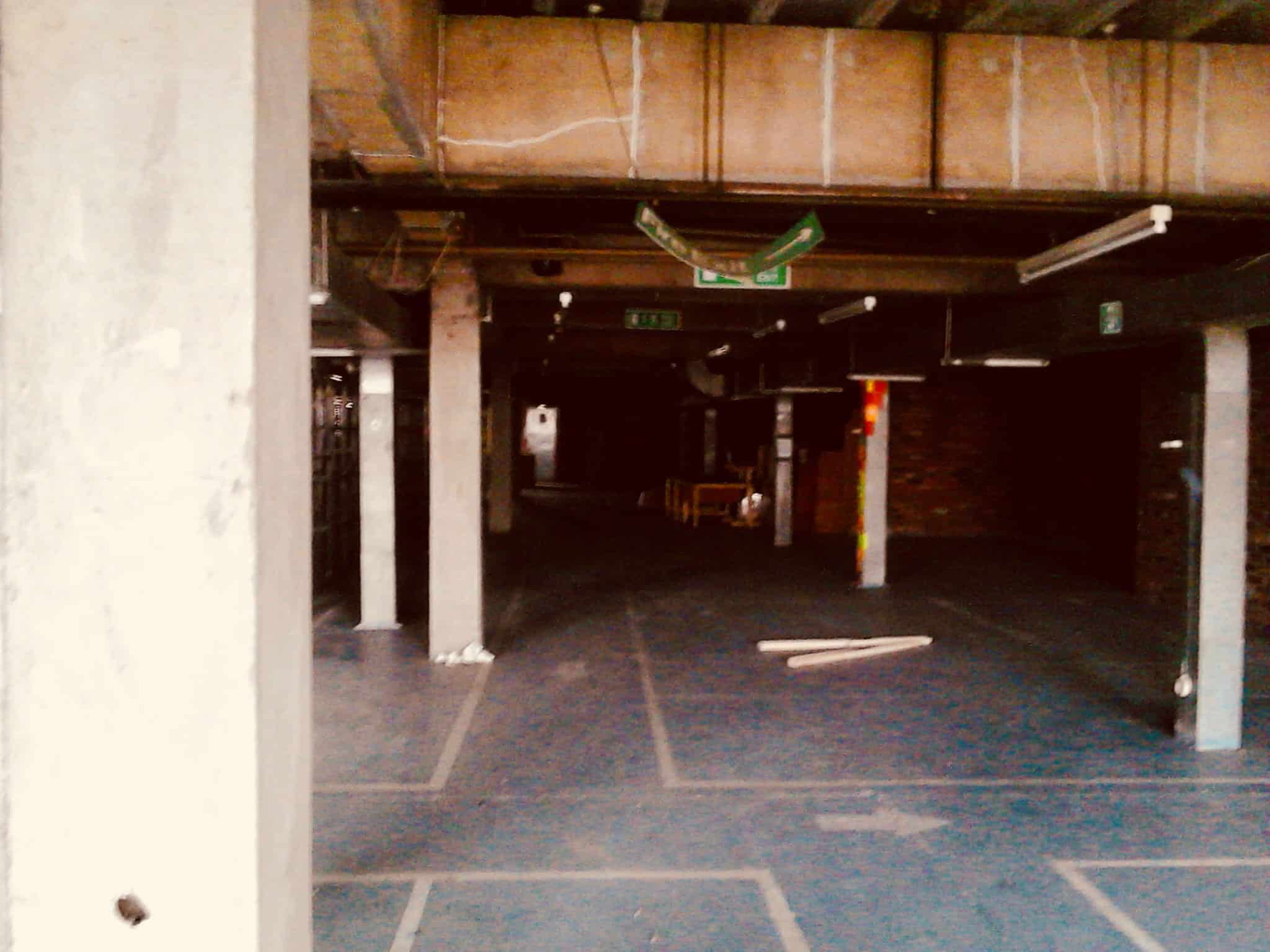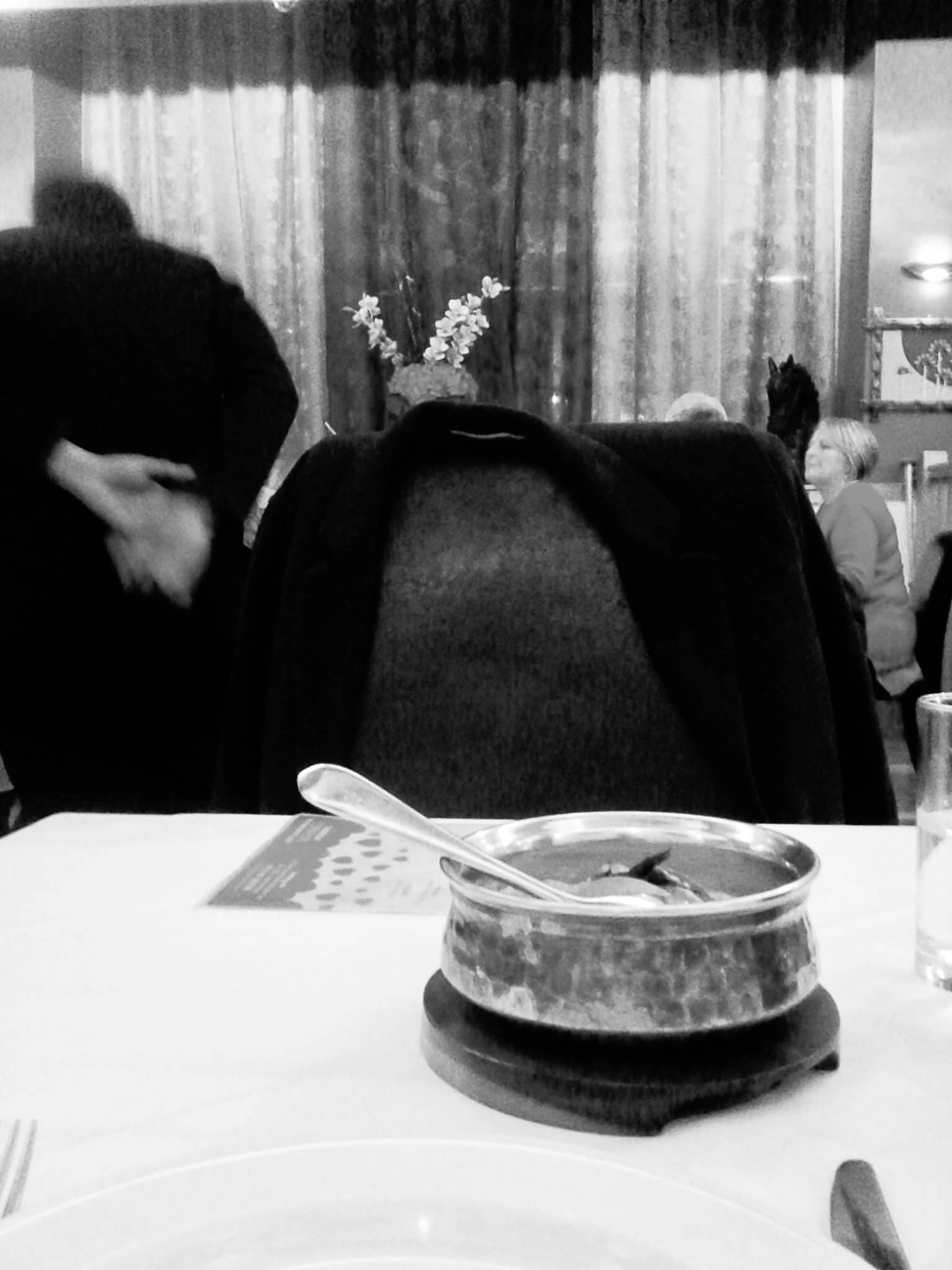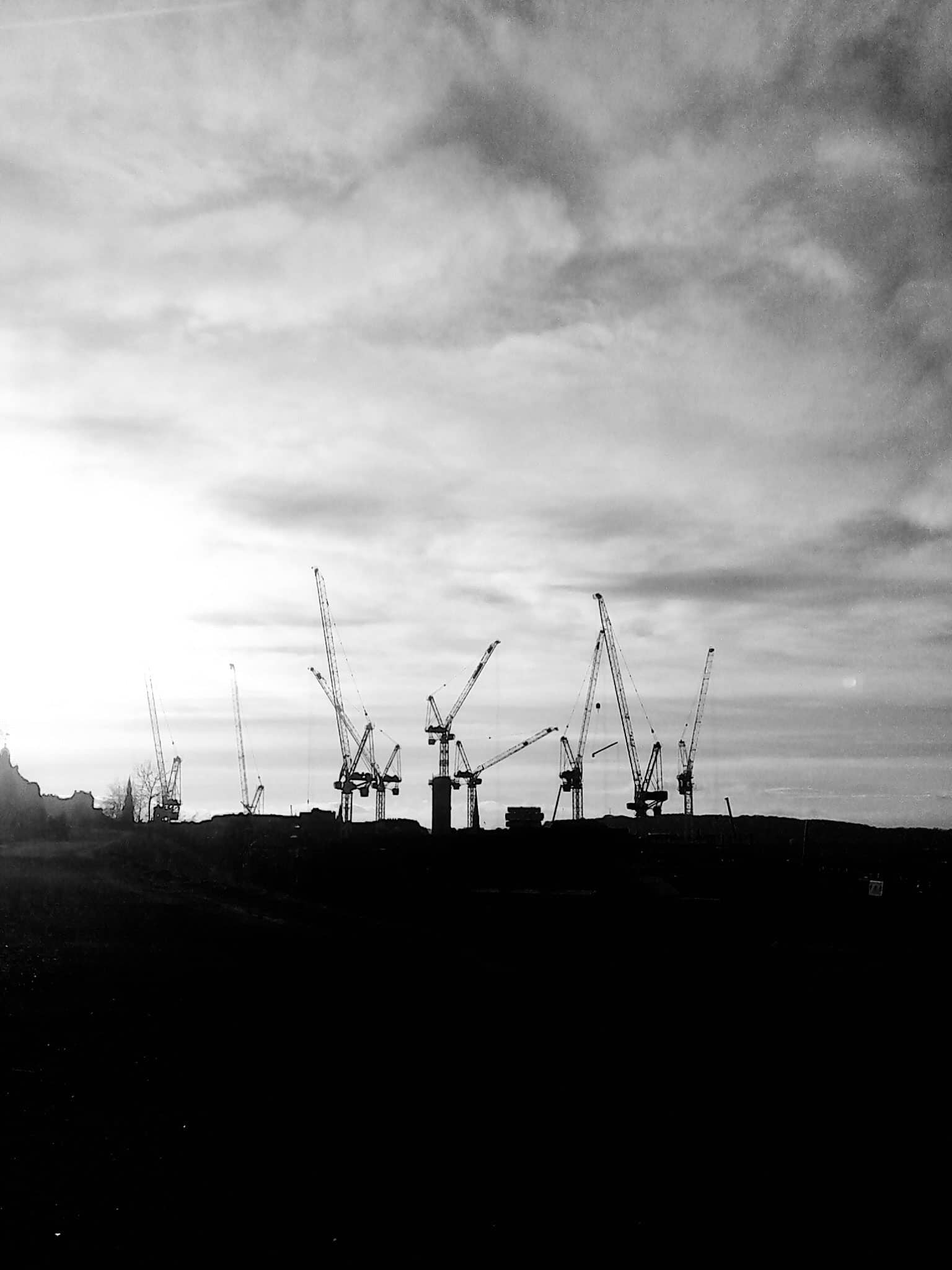ART RESIDENCIES: In this series of interviews we ask artists and creative professionals what art residencies mean to them and what benefits they bring to both sides. There is a wide range of art residencies available and it is crucial to make artists aware of such possibilities, recommend the most interesting ones, and allow art practitioners to share their experiences. Alongside the interviews, we also publish articles with selected open calls from around the world, and run a Facebook Group “Open calls/Residencies/Opportunities for artists” where the arts community can share more opportunities and experiences.
We talked with Andrius Arutiunian, an Armenian-Lithuanian composer and sound artist based in The Hague and Vilnius. He was taking part in the residential programme at the BALTIC Centre for Contemporary Art in Gateshead (Newcastle, UK) for emerging artists from the Baltic States: Lithuania, Latvia and Estonia, and the wider Baltic region. During his residency, Arutiunian will develop a new performative work and installation using biometric tracking software. He was supported by the Lithuanian Culture Institute.
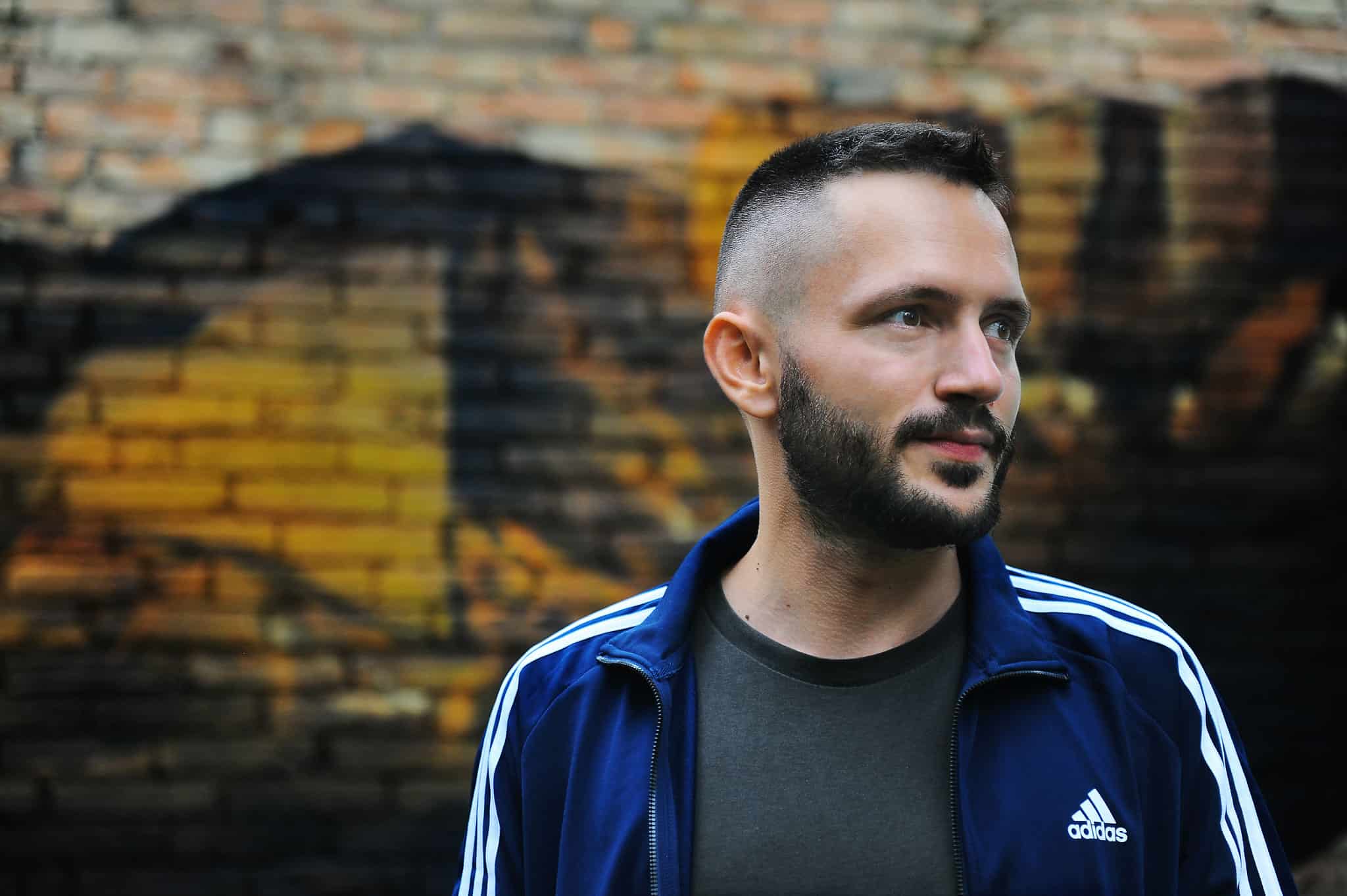
Andrius Arutiunian, photo: Tomas Terekas
Michalina Sablik: How did you find out about the residency programme? How did you apply?
Andrius Arutiunian: I first heard about the program through the Lithuanian Culture Institute, who is a partner in organising the residency together with the BALTIC Centre for Contemporary Arts. Since I’ve just started putting together an idea for my new work, and it connected in many ways to the themes of this residency (migration, borders, identity) it seemed like a good chance to develop this work further.
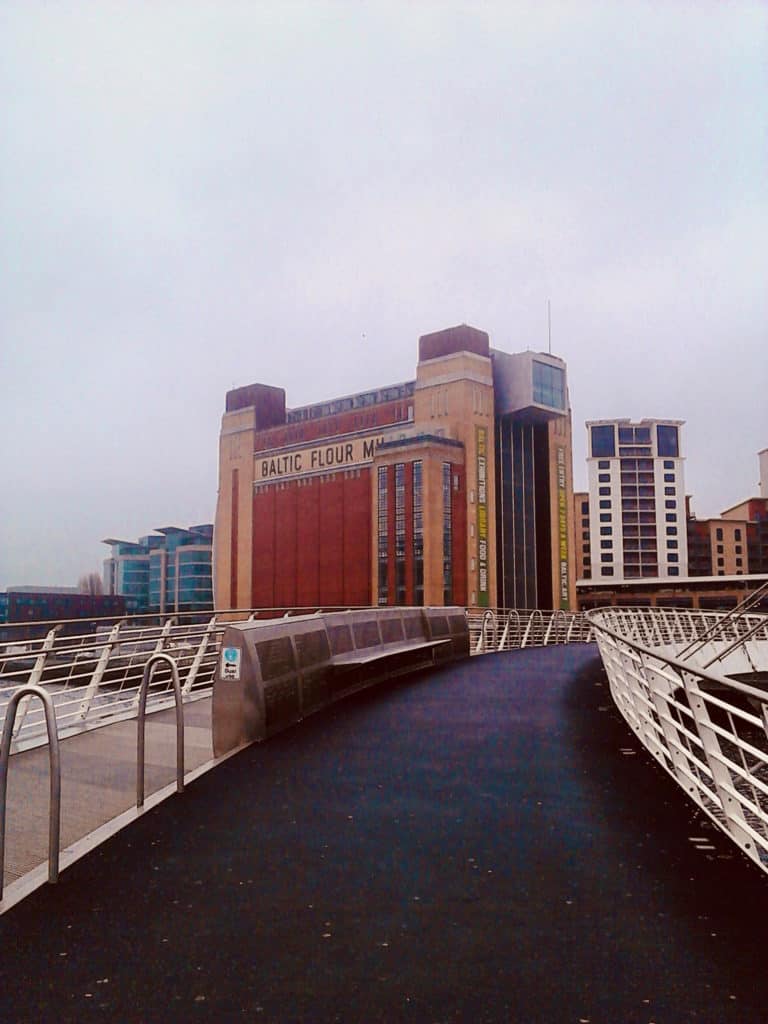
Andrius Arutiunian @ BALTIC
M.S.: What does your regular, art residency day look like?
A.A.: I suppose one of the most attractive things about residencies is that there aren’t really any regular days, right? My time at the BALTIC involved meeting a lot of people from different institutions not only in Gateshead and Newcastle, but across the whole North-East as well as Scotland. So perhaps the most regular thing was navigating through different voices, speeches and accents of all the people I’ve met during the residency. It’s quite a beautiful rhythm – meeting so many active and open institutions and individuals daily, something I’ve enjoyed thoroughly.
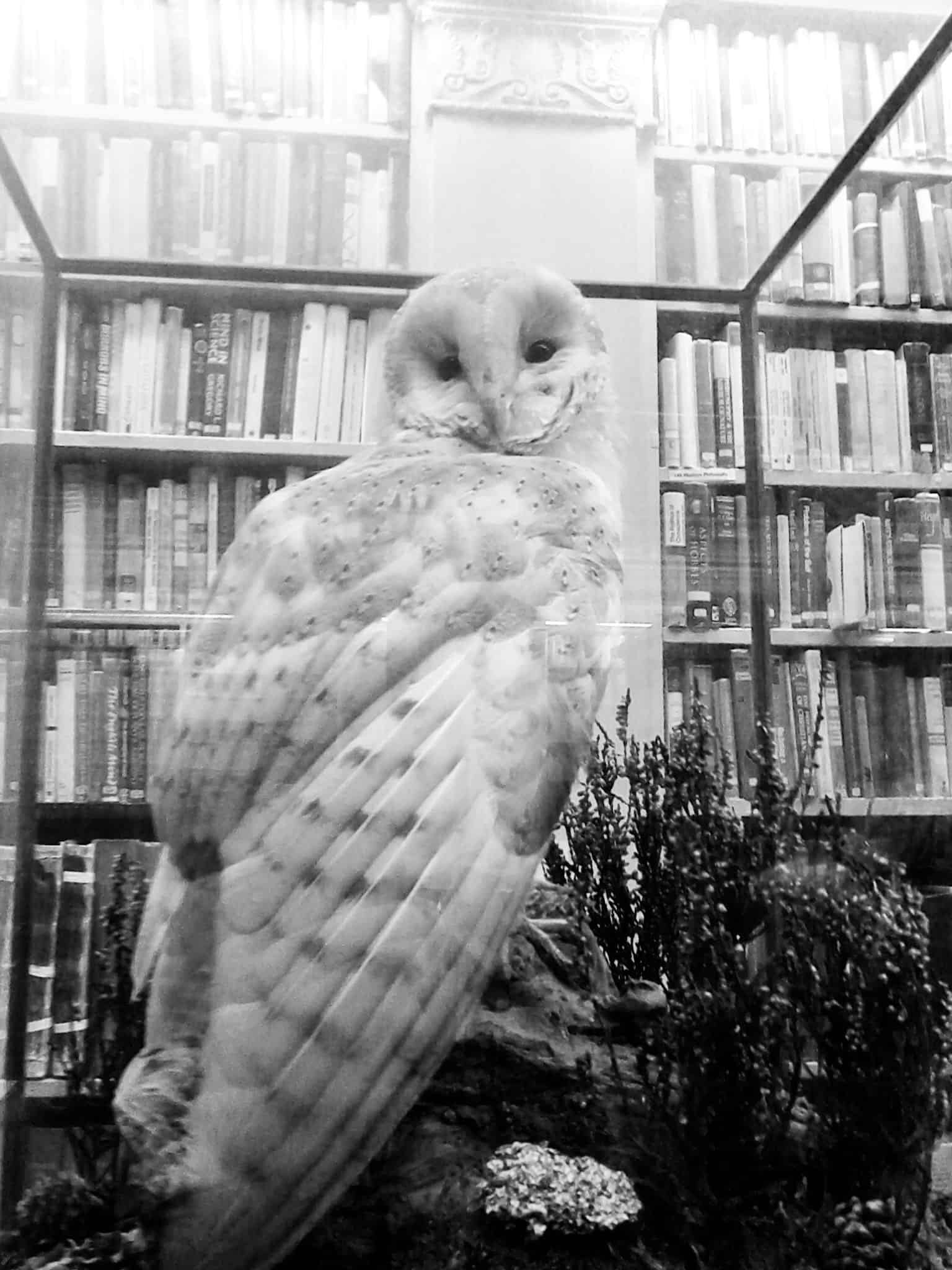
M.S.: In your experience, what distinguishes working as part of residencies from working in your atelier?
A.A.: Working as a sound artist and composer can be quite a solitary practice, often in blocks of concentrated work at very different times of the day. I feel quite lucky to be able to work solely on my own projects and on my own schedule, which means that often you can find me in my studio sampling or editing sounds, or tweaking videos till very early hours of the morning. Being in a residency, there can be working hours you have to adhere to, which is quite a different mode of working.
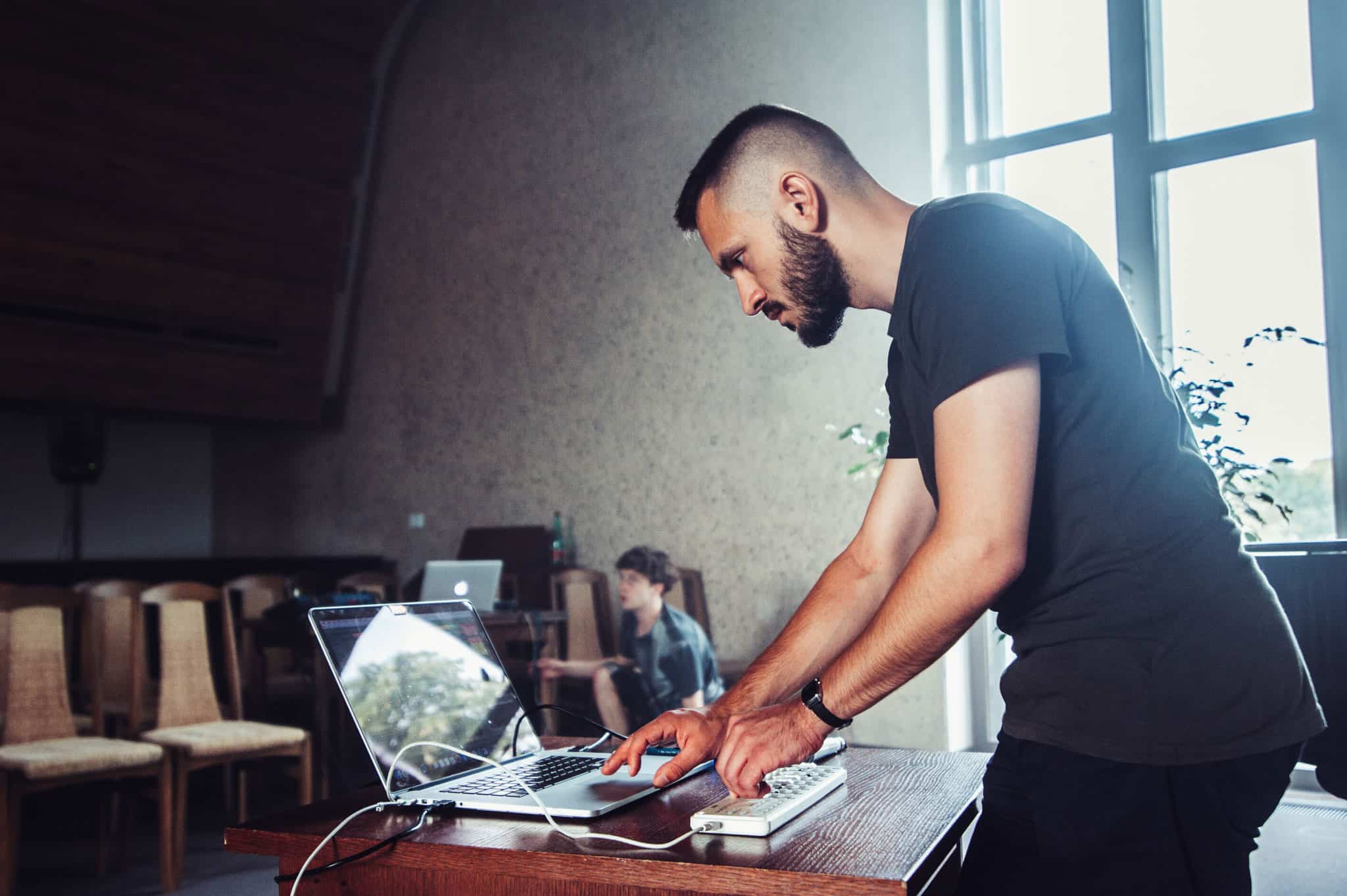
Andrius Arutiunian, soundchecking at Deep Splash residency
M.S.: Does the change of context help you in the creation process?
A.A.: That’s probably the best thing about residencies. Last year I’ve been lucky to take part in residencies in Armenia, Dilijan, and in Lithuania. Weirdly enough, they both took place in the former Composer Union’s resorts, which were built back in the Soviet Union times. The residency in Dilijan was organised by the Quartertone, and was situated in a beautiful mountain complex, surrounded by lush northern Armenian forests. The Lithuanian residency, which was organised by the Deep Splash platform, took place in a spa-town of Druskininkai, and thus created its own strange, and exciting experience. Two completely different geographic contexts, and yet very similar spirits!
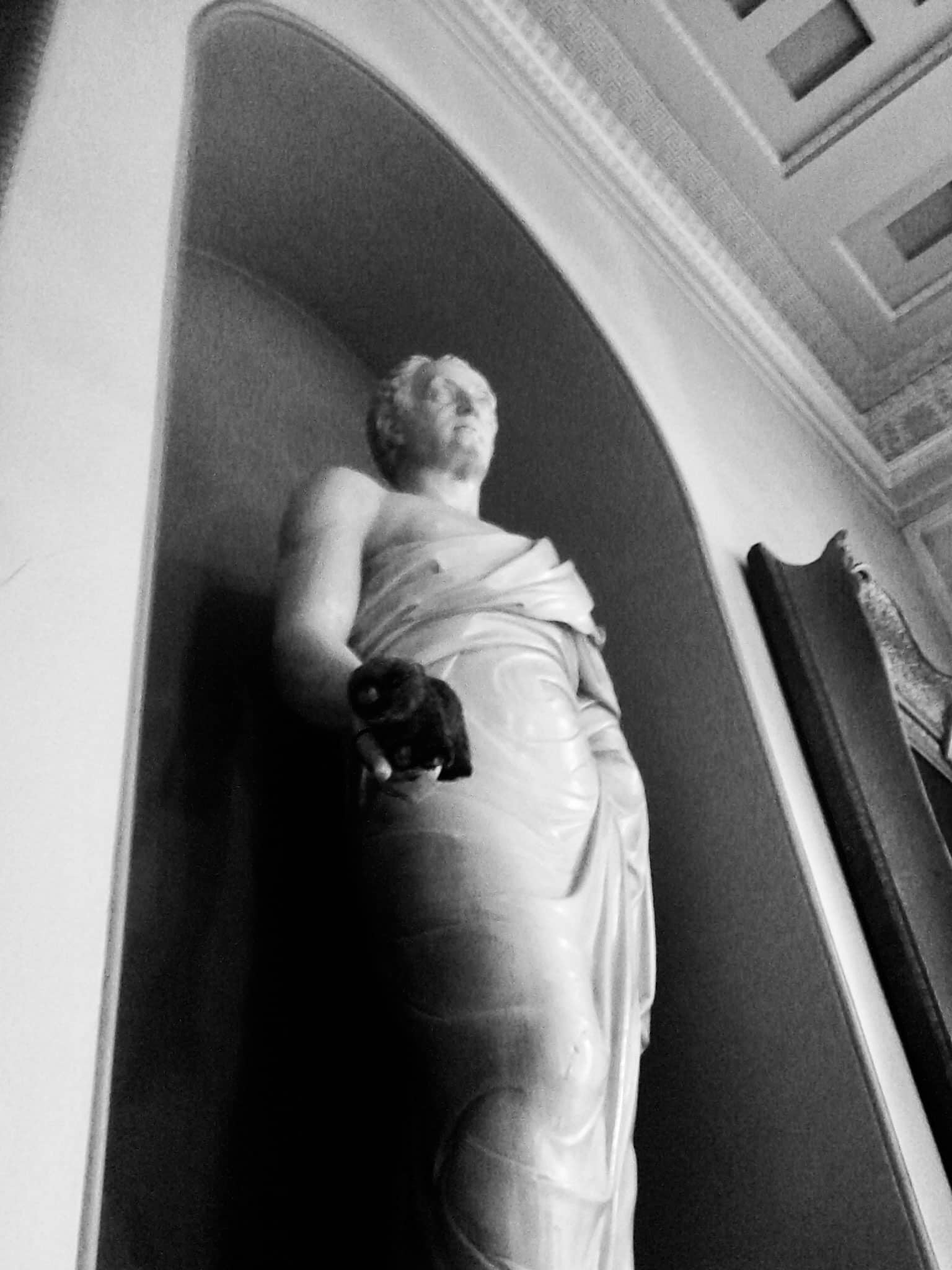
M.S.: Do you place an emphasis on your work or rather on meeting people and exploring the city?
A.A.: It all depends on the framework that the residency is working with. Because the residency here at BALTIC was only three weeks long, I wanted to primarily focus on getting to know various people and institutions all across the North-East. Then again, through all the conversations and discussions I’ve had here, my piece has also morphed and gained focus, which is actually a novel way of working for me.
My new work called Portraits and Poets is connected to biometric data lie-detector currently trialled at the external EU borders. I am working on subverting a similar algorithm to measure the verity of various contemporary thinkers and writers using the same criteria. The algorithm will be projected publicly and will continuously scan and assess videos of different authors. This process will in turn generate and influence the sonic material I’ve made for the piece.
While in Gateshead, I’ve had the chance to talk deeply about these topics not only with the BALTIC curators Emma Dean and Alessandro Vincentelli, but also to present a small try-out version of the piece during the open studio event. So, this mode of working in both private and public way can be quite an interesting way of developing your work.
M.S.: What challenges and opportunities did the residency involve?
A.A.: I guess the main challenge of any kind of residency is to adjust to the different tempi and speeds it offers. Moving from place to place (as in travel) has already a rhythm of its own, but moving to a new place temporarily (and by “moving” I mean moving physically, linguistically, sonorously) requires one to constantly reshuffle their own position. Sometimes it’s hard to pinpoint the exact location of this shift, and sometimes it becomes clear only after the residency has happened.
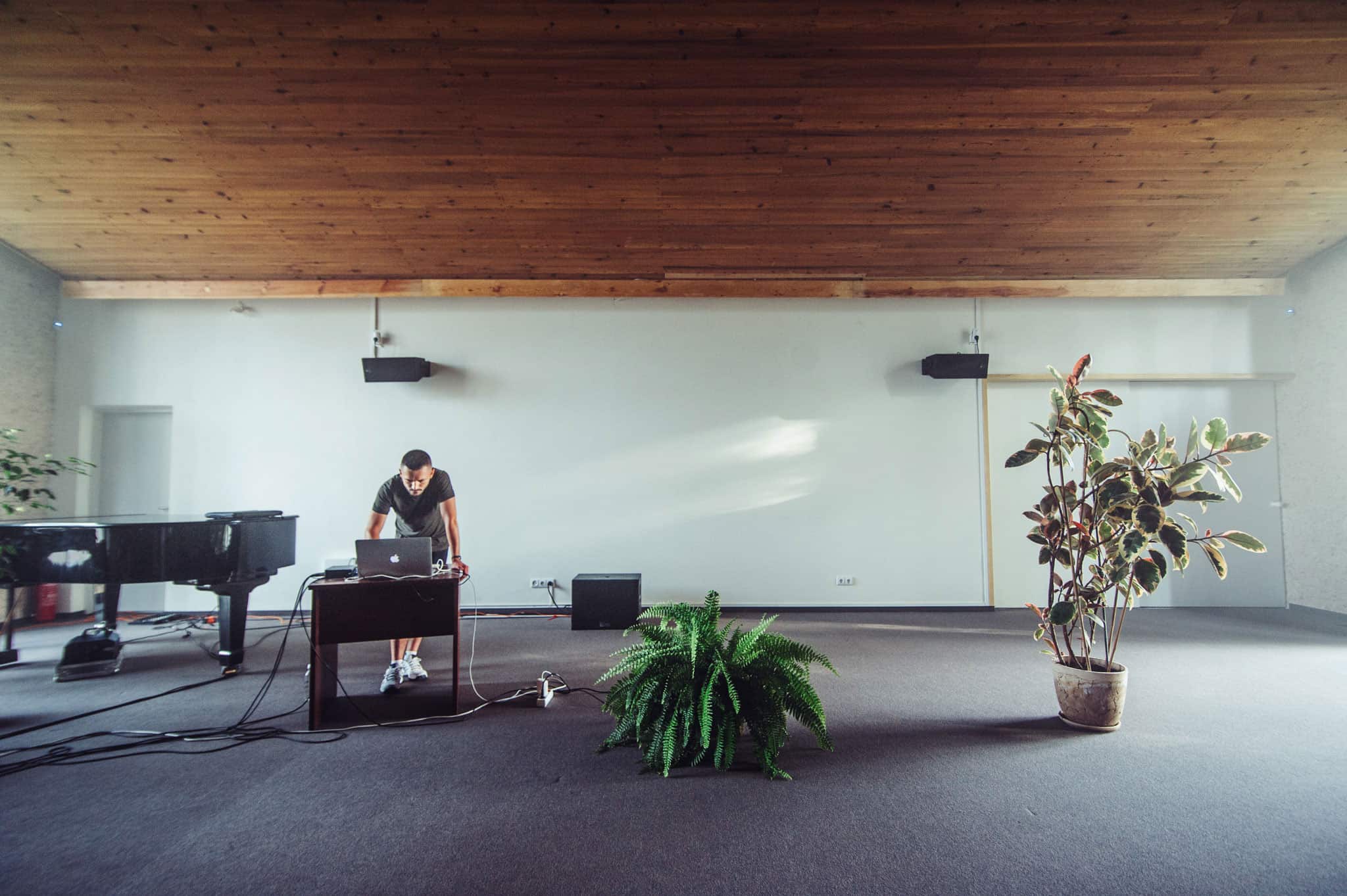
Andrius Arutiunian, soundchecking at Deep Splash residency
M.S.: Name three objects which are the most important to you during the residency.
A.A.: I’m not very attached to physical objects in my practice, but I could suggest three books which I found in the library of the BALTIC which framed my days here. The first one is How to Know What’s Really Happening by Francis McKee, and as the title describes, it discerns different ways of determining verity, something that is very relevant for my new work. The second one is by Shoshana Zuboff called The Age of Surveillance Capitalism, which just came out this February, and it outlines the transformation of the digital capitalism into its current, surveillance-based state. The third, small and yet curious book was Listener’s Voice by Eran Schaerf, with additional essays by Margrit Brehm and Raimundas Malašauskas. The book is compiled as if it was an automated radio-station, with the reader constantly jumping between different frequencies and voices.
M.S.: What would you recommend to artists going abroad for an art residency?
A.A.: I can just quote fellow artist Marianna Maruyama: “You will be the most open during the first three days of your residency – so don’t waste that precious time!
